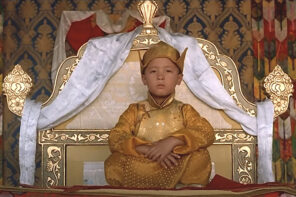Well, not exactly—here is what the spiritual leader of Tibetan Buddhism actually told his four million friends on Facebook earlier this fall:
“All the world’s major religions, with their emphasis on love, compassion, patience, tolerance, and forgiveness can and do promote inner values. But the reality of the world today is that grounding ethics in religion is no longer adequate. This is why I am increasingly convinced that the time has come to find a way of thinking about spirituality and ethics beyond religion altogether.”
It is easy to sympathize with the Dalai Lama’s frustration. After millennia of being preached at by priests and prophets, humanity is still addicted to war; we continue to lay waste to the planet’s fragile ecosystem; we torture animals, repress ethnic minorities, and ignore the plight of the poor.
Worse still, religion has often been in service of the very sins of intolerance that its prophets have railed against. Abortion clinics are bombed to support a “pro-life” agenda; religiously inspired hatred in the Middle East have fueled ongoing war—religiously inspired hatred everywhere have led to countless horrors.
In the past, such moral failings, while contributing to human misery, did not put life itself at risk. But that has changed. Our once-marginal species is now the dominant life form on the planet numbering over seven billion souls. Granted, there are still more microorganisms in a shovelful of prime agricultural soil than human beings on Earth. But bacteria don’t have brains, and the crux of the problem is that we do.
To call the brain a “problem,” of course, is only half of the story. The human mind has created art, science, philosophy, government, education, and the miracles of modern medicine. Religion, with its exalted ethical and spiritual teachings, is another example—whatever Richard Dawkins might say—of our human capacity for creating good.
The New Atheists are right of course when they fault religion for not living up to its own ideals. They would get no argument from the Dalai Lama on this. But His Holiness would be quick to point out that the moral principles themselves are not to blame—it’s our failure to act on them.
The Dalai Lama recommends a radical new approach: a religionless religion, if you will, stripped of myth, superstition, and narrow dogmatism, and focused on the practical work of transforming human behavior. He wants to incorporate the insights of the hard sciences as well as psychology, philosophy, and sociology into a broad-based new discipline to address our current moral crisis.
But can religion be rationalized into a pure system of ethics without losing its (historically) persuasive power?
Some have pointed to Buddhism itself as an example of just such a system. Western practitioners like to think of Buddhism as a methodology for self-cultivation rather than as a religion per se. But Tibetan Buddhism, with its pantheon of deities and arcane practices, certainly looks familiarly religious to those of us brought up on Western religious myths and symbols.
I suspect that His Holiness would agree that these religious elements are not a bad thing. Because religion, for all its faults, seems to have an unrivaled capacity to move us, and to motivate us.
Perhaps that has something to do with stories—we want to know how our private stories fit into the greater cosmic narrative. The Dalai Lama seems to be saying that religion needs to work harder to bridge the gap between the story that it tells and our actions in the world. It is not enough to provide believers with a comforting world view; religion should give people tools to act upon the sacred ideals that it preaches.
The way to accomplish this, according to the Dalai Lama, is spiritual practice. “We are now in the twenty-first century,” writes Tibet’s leading monk.
“The world is also facing a lot of new problems, most of which are man-made. The root cause of these man made problems is the inability of human being to control their agitated minds. How to control such a state of mind is taught by the various religions of this world.”
The Dalai Lama advocates prayer and meditation as an antidote to the mind’s capacity for mischief. But he insists that we need not limit ourselves to traditional spiritual techniques. He has written a book on the convergence of views between Buddhism and science and he helped to organize conferences where religious thinkers meet with scientists to explore their common ground. This is because, in his view, science can help religion to fine tune its own methods. (Neurology has already gone a long way toward validating the reality of spiritual states by documenting, for example, similar changes in regions of the cerebral cortex in Cistercian monks during prayer as it has shown in Buddhist monks during meditation.)
The Dalai Lama believes that the fundamental ethical discoveries of religion are scientifically verifiable. When we actually live religiously—and don’t just profess a set of beliefs—we become more forgiving, peaceful, tolerant, attentive and inspired. This in turn leads to profound psychological and physiological changes which can be studied—and even measured.
It is time, the Dalai Lama says, to take the discoveries of spirituality out of the monasteries and into the world. While mindfulness meditation has been introduced into schools, hospitals, and even corporate boardrooms as a technique to lower stress, improve concentration, and help resolve conflicts, Tibet’s religious leader is acutely aware that none of this is enough. “It is all too evident that our moral thinking simply has not been able to keep pace with such rapid progress in our acquisition of knowledge and power,” the Dalai Lama told a group of scientists in 2005.
The bottom line is that taming the mind creates more peaceful and contented human beings. This is the crux of the Dalai Lama’s message—because, as his urgency suggests, we are running out of time to get it right.




